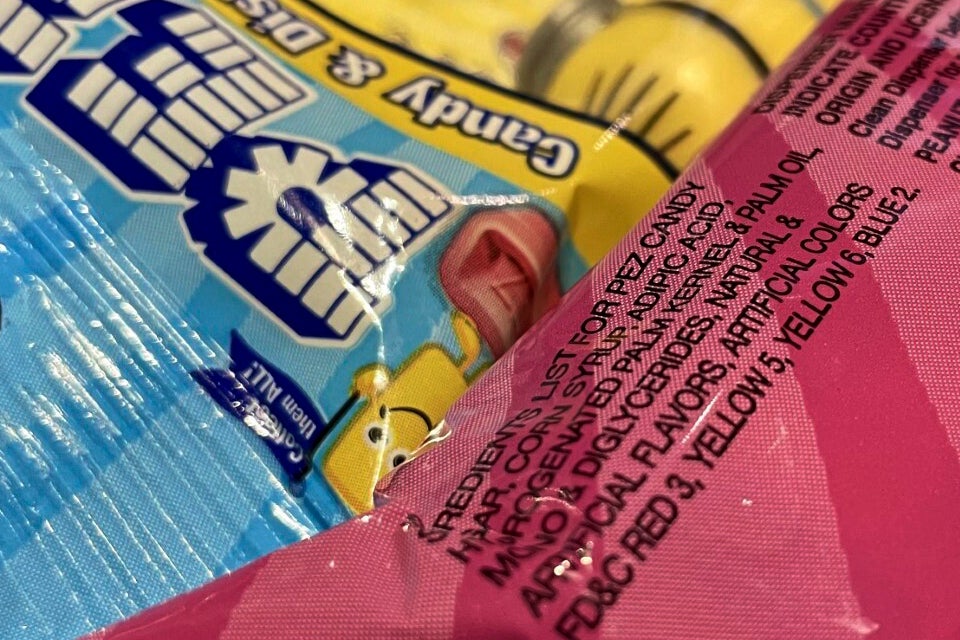A new bill being proposed in Florida could ban Skittles and other treats containing certain chemical additives.
State Senator Jonathan Martin introduced Senate Bill 560 last week, according to ClickOrlando.com. Some of the banned additives include Yellow 5, also called tartrazine, and Blue 1. Both of the food dyes are used in Skittles, its website states.
Those two ingredients are used in a number of sweets, cereals, soft drinks, and other food items, according to the FDA. The agency has approved the ingredients, but according to the Center for Science in the Public Interest, Yellow 5 can prompt hyperactivity in some children while Blue 1 includes a small risk of cancer.
The bill also prohibits the use of the synthetic food dye Red 3, which was banned by the FDA last month. That measure came after lab rats exposed to the substance developed cancer. While the FDA stated that the way Red 3 prompted cancer to grow in the rats doesn’t occur in humans, they still ordered manufacturers to remove it from their products by January 2027.
“Some chemicals cause cancer. They have no place in our food,” Martin wrote on X on February 10. “Period.”
The bill also bans brominated vegetable oil, which is used in drinks to stabilize fruit flavoring — it was banned by the FDA in 2024.
Potassium bromate is another chemical banned by the proposed legislation. It’s used to strengthen dough and make bread whiter. Banned in the European Union and some countries because it causes cancer in rats, researchers have stated that it’s not harmful to humans.
Propylparaben would also be banned under the bill. It’s used as a preservative in drugs, cosmetics, and food.
Artificial food dyes Red dye 3, Blue dye 1 and Yellow dye 5, which are found in common candies, energy drinks and savory snacks, could also go.

The legislation also prohibits the use of Butylated hydroxyanisole. It’s used as an antioxidant and a preservative in cosmetics, food, and drugs. Similarly, Butylated hydroxytoluene is used as an antioxidant in foods with fats.
In 2023, California became the first state to ban BVO potassium bromate, propylparaben, and red dye 3, handing producers a deadline of 2027 to remove the ingredients from their products.
The Florida legislation would ban Skittles in its current state, but the candy may not go away. The European Union and some countries have imposed restrictions on additives, but Skittles simply swapped their ingredients with safer options, meaning that the candies could stay on the market.
The Florida bill, SB 560, would give food producers until January 1, 2028 to remove the additives. If it’s approved, the legislation would go into effect on July 1 of this year. If the companies don’t remove the additives, they could face significant fines under the legislation.
There is no evidence that the bill is related to Trayvon Martin’s death in 2012. Skittles became a flag for those protesting against the acquittal of George Zimmerman, a neighborhood watch coordinator in Sanford, Florida, who fatally shot 17-year-old Martin, claiming self-defense, as the teen was visiting his father.
Martin, who was Black and unarmed, was carrying a bag of skittles he’d just bought from a nearby 7-Eleven







